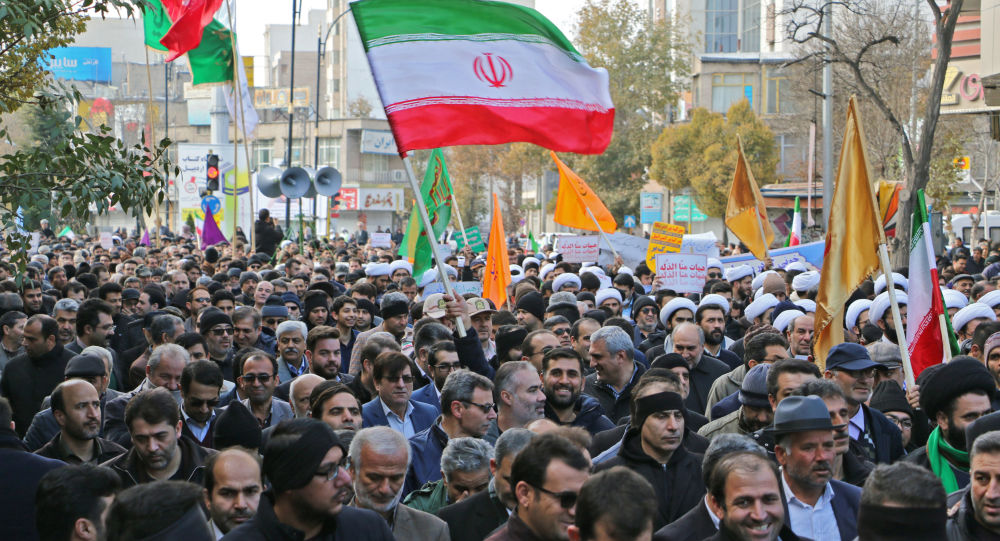The UK ambassador to Iran has denied Iranian claims that he had joined street protests in Tehran on Saturday after he was arrested and then later released by Iranian authorities.
Rob Macaire said he had gone to an event advertised as a vigil on behalf of the victims of the Ukrainian air tragedy.
He said it is normal to wish to pay respects, adding that some of the 176 who died were British. He said he left after five minutes, and was then detained for half an hour as he made his way back to the embassy.
“Arresting diplomats is of course illegal, in all countries,” he said on twitter.
Iranian officials claim that he joined the street protests and was therefore in breach of the Vienna convention by interfering in the internal affairs of the diplomat’s host country.
The semi-official Iranian news agency Tasnim said Macaire had been arrested for “organising suspicious movements and protests in front of Amir Kabir University but released after hours”. It added that he will be summoned by foreign ministry on Sunday to explain why he was provoking “radical acts amongst the protesters”.
The report claimed that an informed police source said he was using “a shop which is located in front of the main gate of Amir Kabir University as the envoy’s secret place for coordination”.
A separate report said the vigil turned into a protest, which is largely the explanation given by the ambassador.
Dominic Raab, foreign secretary, said: “The arrest of our ambassador in Tehran without grounds or explanation is a flagrant violation of international law. The Iranian government is at a crossroads moment. It can continue its march towards pariah status with all the political and economic isolation that entails, or take steps to deescalate tensions and engage in a diplomacy.
Labour’s shadow foreign secretary, Emily Thornberry, said on the Marr programme that Macaire’s arrest was a breach of international law. “He arrived at a vigil for the 170 people, and the vigil was a genuine expression by the people of Tehran about the deep regret they felt about the Ukraine plane crash. He went off to get his haircut and was grabbed.
“It was a complete breach of international law and it was totally wrong to do so. People under stress make bad, really profoundly bad, decisions.”
The UK was also winning diplomatic support from other European countries. The German foreign ministry issued a statement saying: “Temporary detention of the UK Ambassador to Tehran by Iranian security forces is a completely unacceptable violation of international law. We strongly condemn this action. Compliance with the most elementary rules of international conduct is in the interest of all.”
Macaire is a highly experienced and level-headed diplomat and the likelihood of him actively joining protests, as opposed to observing events, is minimal.
But the episode has led to calls for his expulsion from Iran by some hardliners. In parliament Alireza Salimi, a conservative member of the House of Representatives, said: “It is strange that the British ambassador was present in the riots last night and finally came out of the curtain; we did not know whether the British Embassy building was an embassy or a chaos command centre; an embassy or counter-revolutionary organisation.”
Macaire was last week called in by the Iranian foreign ministry for an official dressing down over the way in which senior British politicians including Boris Johnson and Raab had appeared to welcomed the death of the Islamic revolutionary Guard al-Quds commander Qassem Suleimani.
Britain has stopped short of endorsing the assassination, but said it has not lamented his death, a formulation that in Iranian eyes does in effect welcome not just his death, but the manner of his death.
Macaire was ordered to convey back to London the official anger that the prime minister’s remarks had caused. At one point officials said the endorsement by the UK made the UK party to the US action, but this was not interpreted as a threat to the UK military forces.
Macaire has been previously criticised for hosting what Iran regard as dissidents at the UK embassy in Tehran.
The UK says it has downgraded staffing at the embassy following the tensions.
In November, in a sign of deteriorating relations, Iran’s Intelligence ministry announced that any form of cooperation with the British Council was forbidden and will lead to prosecution. The ministry’s public relations office had claimed that “the UK – which has a long history of infiltration, creating networks and generating propaganda in various countries – was planning to implement a project for cultural networking purposes” in cahoots with the British Council in Iran.








































admin in: How the Muslim Brotherhood betrayed Saudi Arabia?
Great article with insight ...
https://www.viagrapascherfr.com/achat-sildenafil-pfizer-tarif/ in: Cross-region cooperation between anti-terrorism agencies needed
Hello there, just became aware of your blog through Google, and found ...